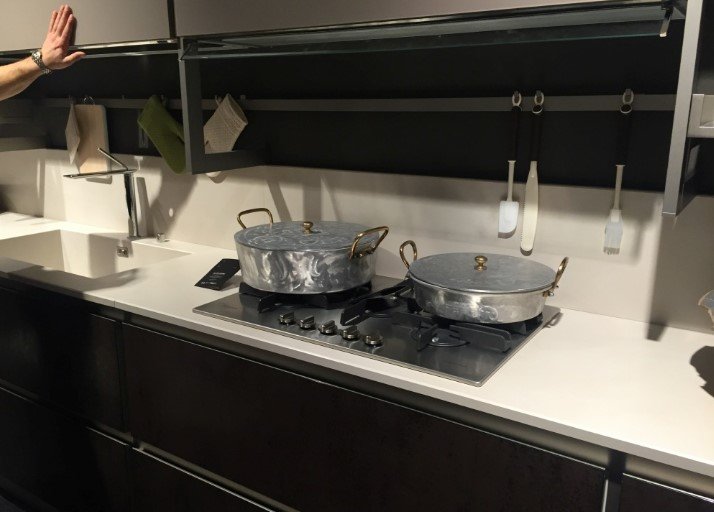It’s true; gas stoves are more affordable upfront, as they tend to be $50-100 cheaper compared to electric ranges. However, the lower energy costs of electric over time outweigh the initial price pf the gas counterparts. So technically, electric stoves are cheaper than electric stoves. Confused? We’ll break the numbers down in this post.
With energy prices fluctuating, you’ll be forgiven to scratch your head when purchasing a new stove, wondering which one will be cost-effective. While the two options on the table – gas stove and electric stove – are great choices, they come with different upfront and running costs.
So which is generally cheaper? We’ll break down the numbers on both cooking fuels to determine the more economical option.
Which one is Cheaper to Use Between Gas and Electric Stove
Which is cheaper – gas or electric stove infographic
When comparing gas vs electric stoves, it helps to understand that they operate differently.
Gas stovetops use combustion between natural gas or propane and oxygen to produce a flame. This heats the cooktop surface and pans. Electric ranges, on the other hand, use heating coils that get hot when electricity passes through them. The coils transfer heat directly to pans.
For ovens, gas models also rely on burning gas to generate heat. Electric ovens use electric heating elements in the bottom and top to cook food.
Breaking Down the Numbers
Let’s analyze the numbers to see which fuel, electricity or natural gas, provides more value for your dollar.
Looking at national averages as of 2023, residential electricity costs around 15 cents per kWh. Of course, rates vary across states, from a low of about 8 cents to a high of over 30 cents per kWh. For natural gas, the typical household pays between $15 to $28 per 1000 cubic feet. Translated into heat energy units, gas runs around $1.50 – $2.80 per 100,000 BTU.
Based on those approximate energy costs, an electric range would cost about 15 cents per hour to run one large burner. For a gas stove, that same burner at 12,000 BTU would cost around 18 cents to run for an hour.
The oven comparison also puts electric in the lead. An average electric oven drawing 2.5 kWh would cost 38 cents to run for one hour. A gas oven burning 12,500 BTU per hour would cost about 19 cents.
In addition to direct energy spending, the appliance purchase price also factors in. Gas stoves tend to be $50-100 cheaper upfront than comparable electric ranges. However, the lower energy costs of electric outweigh the higher initial price over time.
There are some circumstances where gas stoves may save you more, especially:
- If your electricity rate is higher than 15 cents per kWh
- If natural gas is cheaper in your area, around $1 per 100,000 BTU
- If you have access to propane at a good rate
The Winner
Based on national energy price averages, electric stoves, and ovens generally cost less to operate daily than gas appliances. The same cooking tasks will consume less electricity than the equivalent amount of natural gas.
Of course, comparing your local utility rates is necessary to determine actual costs for your situation. But in most cases, choosing an electric range will mean spending less on cooking energy each month. And given how often ovens and stovetops get used, those savings really add up over time.
Common Questions
What makes gas or electric stoves more energy efficient?
Electric coils transfer heat directly to pots and pans. Gas loses some heat energy exhausting combustion byproducts.
Which is cheaper per hour – a gas or electric stove?
On average, an electric stove costs about 15 cents per hour to run one burner, while a gas burner costs around 18 cents per hour.
Do gas ovens usually cost less to operate than electric?
No, electric ovens are generally cheaper, about 38 cents per hour vs. 19 cents per hour for gas based on national energy rates.
Does the upfront cost of gas vs electric stoves factor into long-term costs?
Yes, gas stoves are $50-$100 cheaper upfront, but electric stoves’ lower operating costs outweigh the higher initial prices over time.
Should I choose gas or electric based on my local energy rates?
Yes, compare your local electricity and gas rates to determine which is more affordable in your area based on your actual energy costs.




